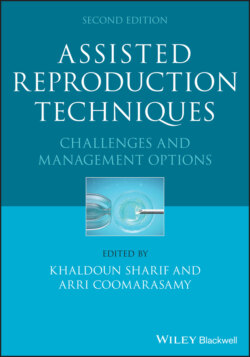Читать книгу Assisted Reproduction Techniques - Группа авторов - Страница 161
Answers to questions patients ask
Оглавление1 Q1 Will getting pregnant after my kidney transplant be high risk? A1. There is an increased risk of pre‐eclampsia (six times increase) and urinary tract infections during the pregnancy and your drugs can cause increased risks to the baby. Therefore, you need a full review with a maternal medicine specialist before pregnancy to optimize your medications and to minimize risks of damage to the renal graft and of pre‐eclampsia. Some immunosuppressive drugs such as MMF should be stopped three months before getting pregnant. MMF should be changed to tacrolimus and azathioprine. Your kidney function must be optimized prepregnancy. There is a higher risk of deep venous thrombo‐embolism and problems with the growth of the baby. Reassuringly, data demonstrated a live birth rate of around 75% in women that achieved pregnancy after undergoing renal transplantation and the miscarriage and ectopic pregnancy rates are not increased.
2 Q2 Will getting pregnant alter the lifetime of my graft? A2. In women with mild kidney disease, pregnancy adds little risk to the transplanted kidney. However, for those with risk factors there is a significantly increased risk of irreversible graft damage due to pregnancy. Risk factors for graft loss include; prepregnancy hypertension, abnormal renal function and protein in the urine.Graft rejection during pregnancy can occur. Women need to have drug levels monitored throughout pregnancy to ensure adequate immunosuppressive levels. Drug levels can alter as pregnancy progresses. Recently, it has been advised that immunosuppressive drug levels should be maintained at prepregnancy levels through frequent serum monitoring to avoid graft rejection.Women are advised to wait at least one year post transplant before considering pregnancy.
3 Q3 Is it safe to have IVF if I have had a renal transplant? A3. IVF does involve stimulating the ovaries. This causes high levels of circulating estrogen and a risk of overstimulation, which stresses the kidneys and increase the risk of a venous thrombosis. These risks can be minimised by using certain IVF protocols to avoid hyperstimulation and to use blood thinning drugs to reduce thrombosis risk. The egg collection should be done by an experienced operator due to the transplanted kidney lying close to the ovaries. Only one embryo should be transferred to avoid the risks of a twin pregnancy.
